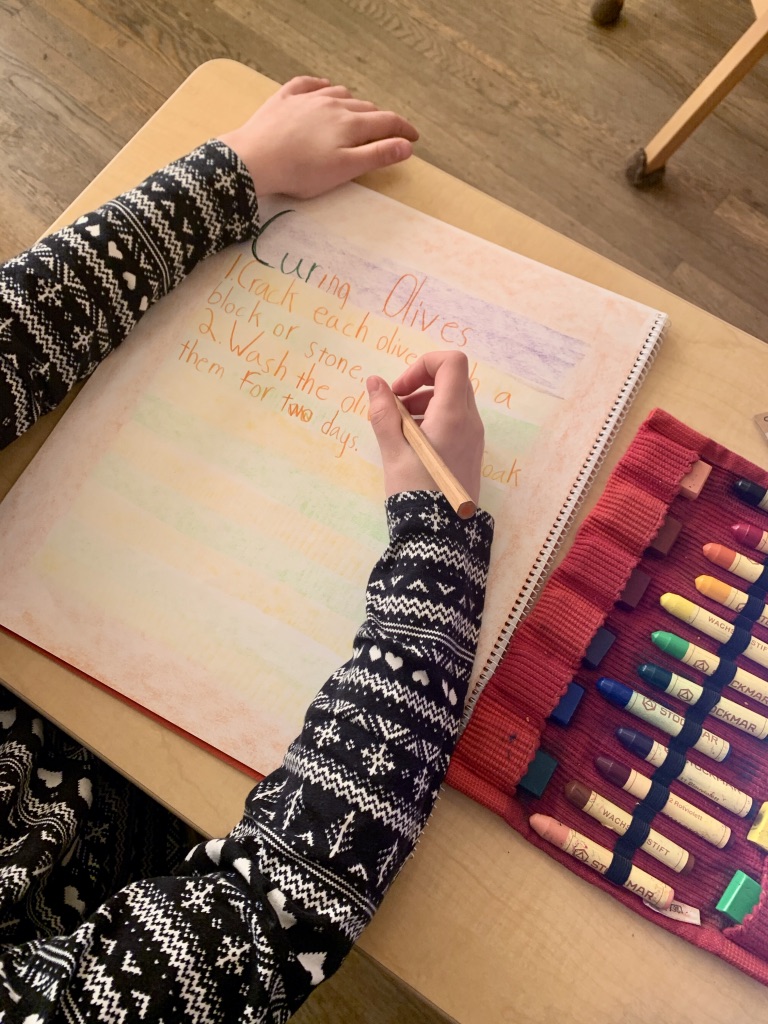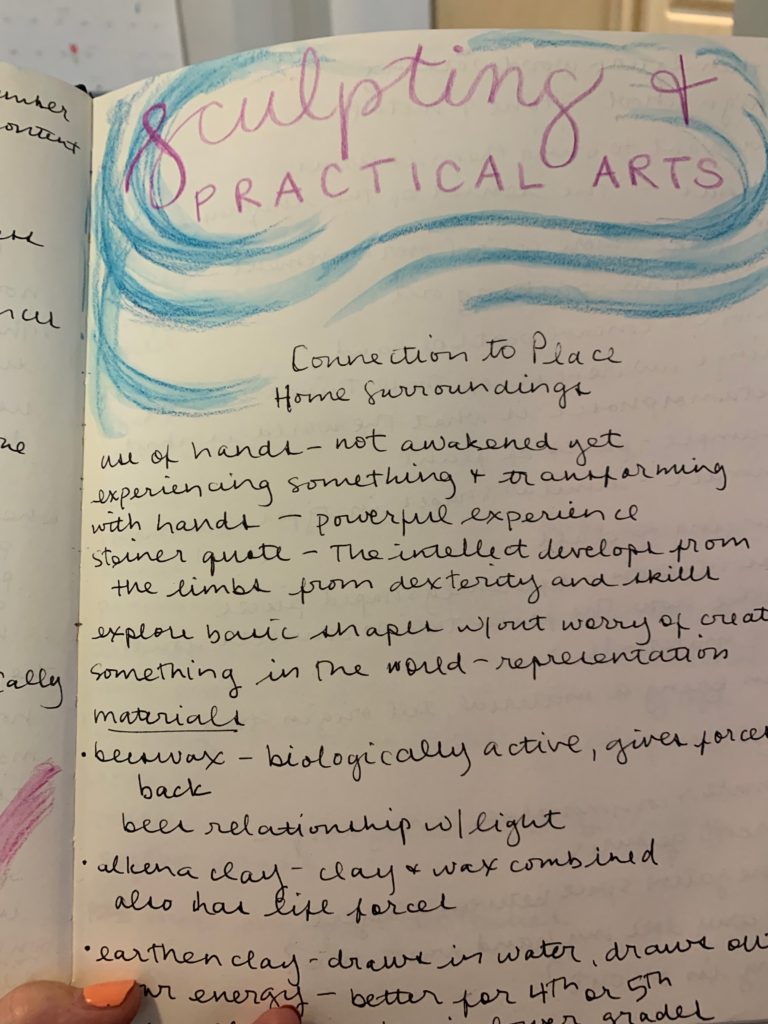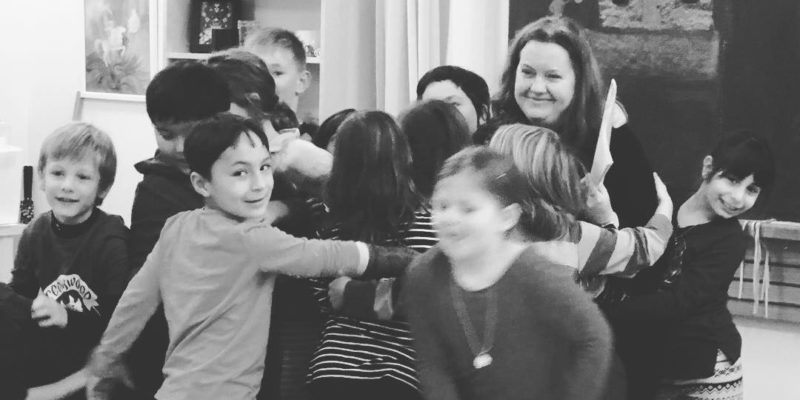Waldorf Teacher Mentoring
If you’ve been reading the blog or listening to the podcast for any length of time, you likely know that I am a HUGE fan of mentoring. Truly, in my early teaching years, mentoring made a huge difference for me. I honestly don’t think I would still be teaching without it.
Now, there aren’t many people out there who would disagree that teachers, especially new ones, need strong mentorship. The challenge always comes in how to provide that mentorship when budgets are tight, people are busy and mentors are hard to find.

But despite those challenges, schools NEED to invest in their teachers. And teachers NEED to insist on their need for mentoring. This is a place where compromise just isn’t worth it.
As you can imagine, as opinionated as I am about mentoring, I am equally opinionated about the how, what and who details. Here are some of those thoughts.
Who Should Mentor?
Most often, when schools have tight budgets, they turn internally to find a mentor for new teachers. Most schools have an experienced teacher on staff and that person is often called upon to support newer teachers.
And while I completely understand why schools turn to this solution, there are a few reasons why it just doesn’t work.
Availability
The first challenge is availability. Usually, that experienced teacher is holding a class of his or her own. She has her own students, parents and curriculum to care for. Time out of the classroom may be limited. And the time that is there is often full of distraction. Far too often I’ve seen those weekly mentorship meetings get canceled, especially when things get busy — which is when teachers need the MOST support.
Conflict of Interest
The second reason why those internal mentorship relationships are complicated is because of the conflict that exists when teachers wear so many hats in the school. Often those experienced teachers are involved in school leadership, which can compromise their role as mentor.
To be clear — no one on school leadership should ever mentor a teacher at their own school. Here’s why.
Mentees need to be able to confide with utmost confidence in his or her mentor. You should feel comfortable turning to your mentor in despair when something goes wrong. You should be able to fall apart completely and then use the support from your mentor to rebuild.
If the mentor is part of school leadership, and involved in hiring decisions, the mentee is likely to gloss over those challenging moments, giving the mentor the impression that everything is going perfectly.
Or worse, the mentor, at some point down the line, is involved in a discussion about the mentees future employment and remembers those breakdowns and challenges that the teacher had.
For this reason, it is of utmost importance that the mentor is an outside resource.
Now, this doesn’t mean that teachers within the school can’t support one another. They should! But teachers need to be clear when they are talking with colleagues, that those colleagues may be a part of conversations about your employment and there is no confidentiality agreement about those casual mentorship moments.
The integrity of the mentor-mentee relationship must be held in the highest regard and not compromised because of finances or circumstances.

Sign up for my free online workshop The 3 Classroom Management Strategies Every Waldorf Teacher Should Know
What should be included in mentoring?
After years of providing mentorship, I have equally strong opinions about what kinds of support a mentor can provide. Here are just some of the supports I have provided teachers in the past.
- A format for self-reflection
- Classroom visits
- Guidance with creating rhythms
- Supporting documents for providing feedback to students and parents
- Communication support
- Classroom management advice and systems
Ideally, a mentor guides the teacher in identifying the areas of their work that need strengthening. Then they work together to create a system and a plan for doing that work.
Out of respect for the mentor-mentee confidentiality relationship, the mentor should NOT be expected to provide feedback to school leadership. This can be a tricky thing. The school is paying for the mentoring and will certainly want to know that the work is happening, but the mentor’s obligation and allegiance is to the teacher, not the school.
If the school is truly needing that kind of feedback and insight into the teacher’s work, they should hire an evaluator. An evaluator’s duty is to the school, not the teacher. When I have worked as an evaluator, there is a degree of detachment. The teacher knows that I am reporting to the school. He or she should assume that anything they tell me can be mentioned to school leadership.

Often, when I work as an evaluator, I provide some mentorship. I can give advice and support to the teacher, but my priority is to report to the school. For this reason,
- an evaluator can provide mentorship
- but a mentor can not move into an evaluative role.
What should be the format of the mentoring?
I have definitely found that frequent mentorship visits are more valuable than intense visits that happen once or twice per year. If you think about how our students learn and grow, we see the most progress when students have frequent, regular exposure. The same is true for teachers who are working on improving their skills.
There should be those intense mentorship moments at the beginning of the year, and maybe again at the end when assessment and evaluation needs are strongest. But otherwise, the best plan includes frequent, short visits that help teachers touch in and remember their improvement goals and measure their progress.

The value of these short visits, over longer, intensive mentoring just a once or twice, is a big reason why many schools turn to internal resources. It can be expensive to bring a mentor to the school with frequency, especially if your Waldorf School is the only one within a few hours’ drive.
I’ve done so much thinking about this mentorship need, and been on both sides of the mentoring relationship enough, that I’ve tried to determine a system that can provide the mentorship that is best for teachers, in a way that is affordable for schools.
This is part of the reason why I created my program The Practical Art of the Waldorf Classroom.
And that program is great. So many teachers have benefitted from what it has to offer. But if I had my pie-in-the-sky mentoring dream, this is what it would look like.
- Two 3-day classroom visits (one at the beginning of the year, one about halfway through)
- Bi-weekly check-in phone calls
- Weekly journaling in a shared Google doc. Feedback and insights provided in response
- Curriculum, record-keeping and communication support documents
- Email availability for questions as they come up
- Membership in a private Facebook group with other teachers
Oh my gosh, you guys. Wouldn’t that be great? I have no idea what it would cost to provide this level of support, but imagine the confident, capable teachers that would come out of a program like this!
Want to work with me to make it happen?
I’m kind of joking. I mean, I’ve got my own students, parents and school to look after, but I would LOVE to do this work.
Until we find a way to make it happen, though, I’m pretty satisfied with my Practical Art course. If you’re interested in learning more about it, a new cohort is about to start in February and I’d love to have you join.
You can find out more about the program here. Or just email me at meredith@awaldorfjourney.com to find out if it’s a good fit.




Leave a Reply